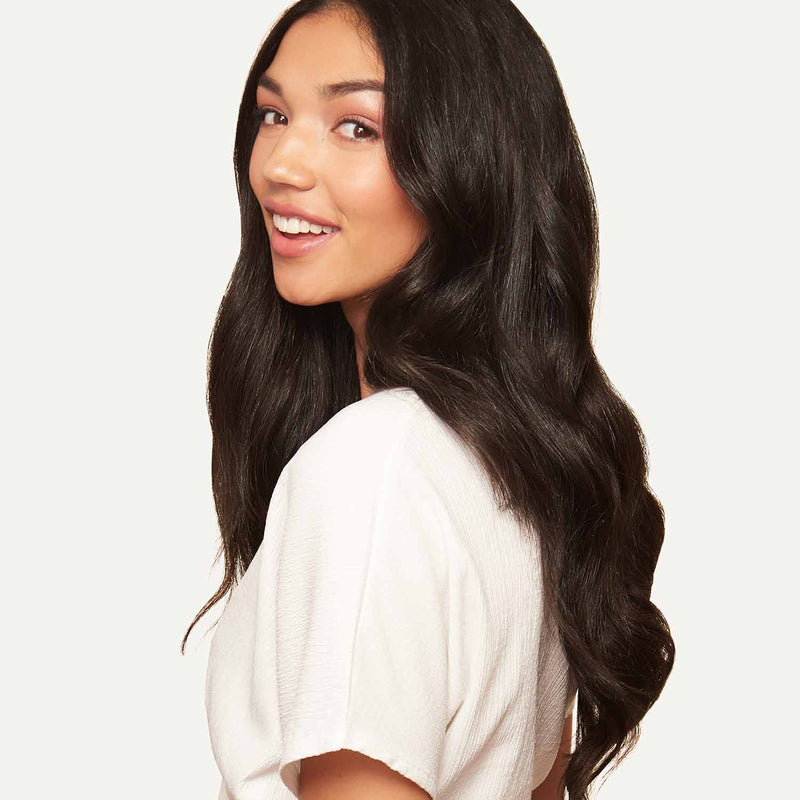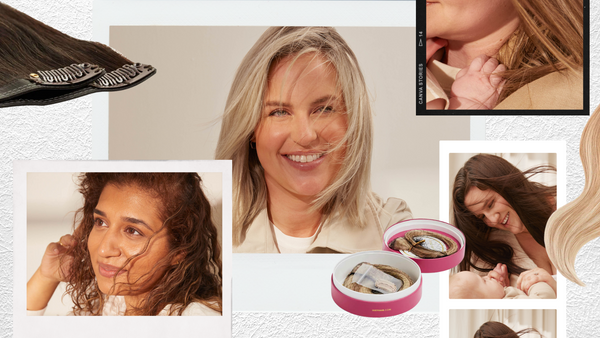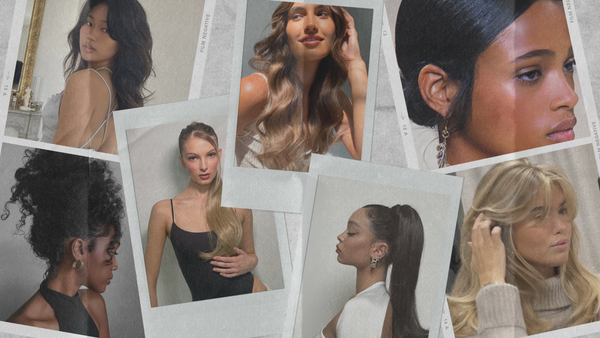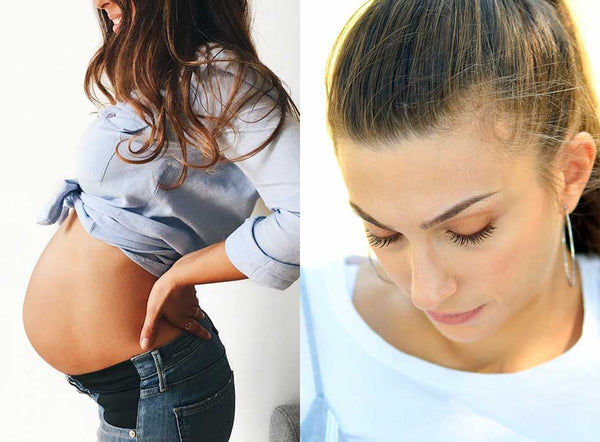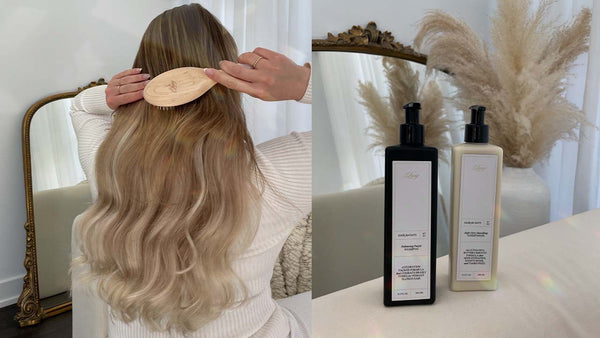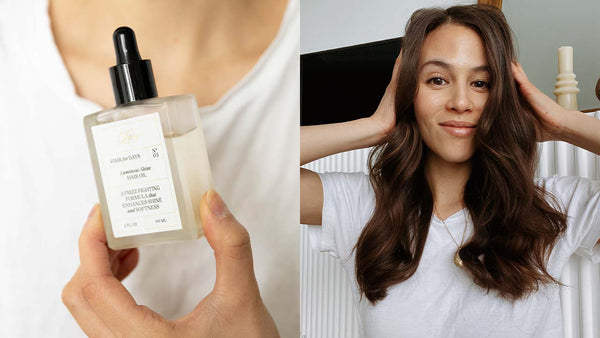It's been all the buzz for years, but Argan Oil is more than just another beauty and hair repair trend.
Consider Argan Oil your do-it-all, one-stop-shop for almost all your hair and skin needs. It is like the Target of all oils and has an array of benefits for everyone.
What is Argan Oil?
What is Argan Oil, exactly? The naturally derived plant oil is found in the kernels of the Argan tree, native to Morocco, Africa. Its geographical origin is why it is also described as Moroccan Oil and the Argan forest was declared by UNESCO as a biosphere reserve in the late 80s—yes, these trees and the fruit they bear are super precious. Argan Oil has also been dubbed “liquid gold”, not just for its gold/amber color but also for its health-packed components that can do everything from clear your skin, soften your hair, and even improve heart health. Argan is so good, even goats native to the area, are often seen climbing Argan trees to eat its leaves and fruit.
While its many benefits for skin and hair have become ever popular over the past few years, Argan Oil is also widely used in cooking and consumed as a supplement for its natural fatty acids – the good kind filled with nutrients. No wonder even goats are after its fruit!
Argan Oil has inside-out powers, when used accordingly, studies have shown that Argan Oil provides all kinds of boosts to your health. There’s a reason why Argan Oil has had a lasting impression on the health and beauty industry and has proven to be more than just another hair oil. If you’ve wondered how Argan Oil can help you and how to use Argain Oil for hair or skin benefits, we’ve got you covered.

What is Argan Oil used for?
Here are 10 benefits of Argan Oil and how to use Argan Oil in your daily routines.
1. Add Argan Oil to your diet for essential nutrients
It’s that time of year where we naturally think about our diet and fitness. Whether it’s a resolution or not, we’re all looking for ways to live and eat healthier—without having to go through drastic changes—and that’s where a little Argan Oil can help.
Argan Oil contains oleic and linoleic acid or omega-6 – an essential nutrient. Omega-6 is the type of fat used for energy. Although oleic acid is not an essential nutrient, it is still a healthy fat that has been proven to positively impact heart health. Argan oil can be broken down into about 29-36% linoleic acid and 43-49% oleic acid. These numbers may not mean much now but keep reading. Each acid has its own benefits for hair health and skin.

How to use Argan Oil when cooking
Traditionally, Argan Oil has been used for dipping bread, or to drizzle on vegetables, salads and couscous. For cooking and consumption, look for 100% pure Argan Oil. It can also be used for pasta and other recipes where you would typically use olive oil. Drizzle some Argan Oil on your favorite salad, dip, or pasta. Just remember, Argan Oil can easily burn, so ensure you’re using recipes that don’t require high heat.
2. Argan Oil can be good for your heart
When you think healthy fat, avocados may come to mind—probably because they taste the best—but you should add Argan Oil to your list sources for healthy fats too. Oleic acid, found in Argan Oil, works the same way as the healthy fats in avocado and have been found to have heart-boosting benefits. Studies have found that Argan Oil has an impact on antioxidant levels in the blood, which can help reduce the risk of heart disease. It has also been associated with lowering LDL cholesterol (the bad kind) and triglyceride levels, the type of fat found in your blood. More studies are needed to explore Argan Oil’s direct impact on heart health and cholesterol, but the first few scientific findings provide promise.
![Argan Oil]() 3. Argan Oil is rich in Vitamin E
3. Argan Oil is rich in Vitamin E
Vitamin E, also another popular product in many skin and hair products, is known to help prevent inflammation, prevent coronary heart disease and even supports the body’s immune function. Argan Oil is rich in Vitamin E and combined with the healthy fatty acids, it makes it a superpower for healthy skin and hair. Along with Vitamin E, Argan Oil is packed with polyphenols, and CoQ10 which are all anti-inflammatory compounds. These combined components help to smooth skin, giving it a plumper look and can help irritated, inflamed skin.
4. Argan Oil moisturizes skin
All that Vitamin E and natural fatty acids are also what make Argan Oil so good for your skin. Argan Oil has hydrating effects for the kind of dry skin you may be experiencing now with winter weather. With the high contents of oleic acid, Argan Oil improves skin permeability, which is why you find it as a top ingredient in many skin products, because it helps the skin to absorb more. Skin experts recommend using 1-2 drops of Argan oil and massaging it onto your face after applying moisturizer, not only for an extra hydration boost, but to lock in your product too.

5. How to use Argan Oil for hair health
All the goodness packed into Argan Oil makes it the ultimate hair product. Not only does it moisturize hair, but it also helps prevent heat and UV damage. Just like its impact on skin, Argan Oil helps prevent dry hair, and nourishes hair so that moisture stays locked in. Frizzy hair is often caused by lack of moisture and overall hair damage (heat styling, coloring – you name it), but Argan Oil can help keep the frizz at bay. Argan Oil can be used on its own or added to your routine hair mask. By moisturizing hair, it nourishes and replenishes the damaged hair and in turn, helps prevents frizz from coming back.

6. Argan Oil for a healthy scalp
Hair health starts at the scalp, and if you have a dry, itchy and flaky scalp not only does it make wearing black and dark colors challenging, it is simply uncomfortable. Dry scalp occurs when there is lack of natural oils which can occur with over-washing the hair or using too much product. Dandruff is caused by the opposite – too much oil build-up. A dry, flaky scalp is also common during winter months when the cold temperatures dehydrate your hair and skin.
Whether you already have long, shiny, and healthy hair or use hair extensions for a bit of a length and volume boost, taking care of your scalp and providing the right balance of oils is essential for the longevity and growth of your hair. Argan Oil combats excess oil with its anti-oxidant properties while not drying out the scalp, as it helps to moisturize the skin. Your scalp is where cells are generated to create new hair growth, therefore, maintaining scalp health means healthy, longer, and stronger hair.

7. Argan Oil reduces breakage and split ends
If you’re looking for a remedy for brittle hair and split ends, use products that have a high concentration of Argan Oil—meaning it should be the at the top of the ingredients list. If using pure Argan Oil, place a few drops in your hands (reminder: a little goes a long way) and massage the oil into your scalp and all the way down to your ends. Whether you apply Argan Oil through a shampoo and conditioner, or use pure Argan Oil, you should see a difference in the strength and texture of your hair in a short time. By reducing breakage and frizz, your hair will be much softer and touchable. Winter weather has all sorts of negative impacts on your hair, including dandruff, dry scalp, frizz, and more, but a little more Argan Oil in the winter months can counteract these nuisances. Test out how much oil your hair needs, start with 1-2 times a week and adjust as per your results.

8. Argan Oil can help lock color in
Hair color, highlights, balayage, and ombre do wonders for our looks. While using hair extensions to add color to your daily look can help prevent chemical damage from coloring, using the right type of conditioners and products can also help. For those of us who can’t help but color, Argan Oil is proven to help maintain pigments. As coloring can also create dryness, Argan Oil will also help provide moisture that the color chemicals usually strip away. Hair experts recommend 1-2 drops of pure Argan Oil into your hands and running your fingers through your hair after styling to not only moisturize, but keep color in longer.
9. Argan Oil helps fight wrinkles
There are a ton of products that promise to fight off wrinkles, but sometimes they are packed with ingredients we can’t even pronounce. With its ability to restore and strengthen skin tissues, Argan Oil can naturally help prevent wrinkles. Whether consumed as supplement or applied directly on the skin, Argan Oil helps the skin retain water which helps to reduce fine lines and wrinkles. As Argan Oil is also fast absorbing, the fatty acids help to restore the skin’s moisture much more easily.
 Add Argan Oil to your skincare routine by adding a drop or two into your hands and massaging onto your face after moisturizing. Some studies have shown that Argan Oil can also be impactful in preventing the appearance of stretch marks. Using pure Argan Oil, apply a few drops into your hands and warm the oil by rubbing your hand together before applying to your stomach, hips, thighs or other stretchmark-prone areas. If you have visible stretchmarks you’d like to get rid of, mix pure Argan Oil with brown sugar and massage it onto effected areas before you shower. Reapply just the Argan Oil afterward to moisturize. The Vitamin E and Vitamin A will help rejuvenate the skin and smooth out stretch marks.
Add Argan Oil to your skincare routine by adding a drop or two into your hands and massaging onto your face after moisturizing. Some studies have shown that Argan Oil can also be impactful in preventing the appearance of stretch marks. Using pure Argan Oil, apply a few drops into your hands and warm the oil by rubbing your hand together before applying to your stomach, hips, thighs or other stretchmark-prone areas. If you have visible stretchmarks you’d like to get rid of, mix pure Argan Oil with brown sugar and massage it onto effected areas before you shower. Reapply just the Argan Oil afterward to moisturize. The Vitamin E and Vitamin A will help rejuvenate the skin and smooth out stretch marks.
10. Use Argan Oil on acne-prone skin

With all the benefits it provides to the skin, it’s no wonder that Argan Oil can also be used to treat skin conditions such as acne and eczema. Both skin conditions are usually caused by skin that is red, irritated, and inflamed. Argan Oil’s linoleic acid fights inflammation and can help smooth rashes or bumps, while also providing moisture and strength to the skin barrier, making it a natural treatment option. Argan Oil can also help reduce the visibility of acne scarring. The Vitamin E helps to rejuvenate and soothe scars and acne marks. Argan Oil can also be used to soothe and treat razor bumps and razor burn. Applying one or two drops of pure Argan Oil and lightly rubbing it onto effected areas will do the trick. The men in your life may want to try it after shaving for a natural, chemical-free way to soothe and moisturize after their shave.
What to look for in Argan Oil products
While many products are said to have Argan Oil, it’s always best to read the ingredient list properly. If you’re looking for Argan Oil to treat any skin irritations, avoid any product that mixes Argan Oil with fragrances or cites Argan at the very bottom of the ingredient list.
While Argan Oil can be used to treat skin, hair, and even heart health do not use one bottle or product for all three. There are specific Argan Oil products for cooking and even supplements for consumption. Pure Argan Oil for skin and hair can sometimes be interchangeable but be sure to double-check the ingredients and purpose as some will specify its use for best effects. Pure or 100% Argan Oil can be used on skin and hair, but always be sure to test a small are on your skin first before going full-out with Argan, or any new product.
Argan Oil has earned its name as “liquid gold” for these 10 benefits above and then some. Have you used Argan Oil for hair or skin? What differences did you notice? Leave us a comment below.
Written by: Rosalyn Solomon
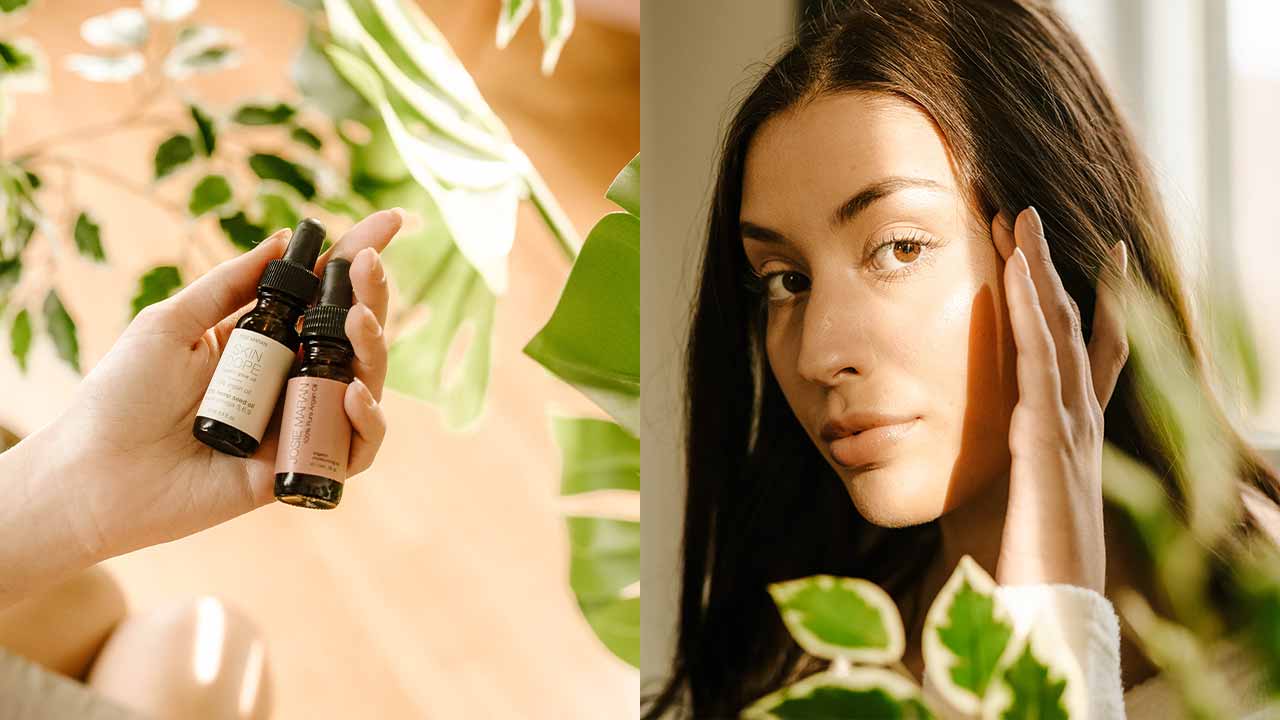
 3. Argan Oil is rich in Vitamin E
3. Argan Oil is rich in Vitamin E

